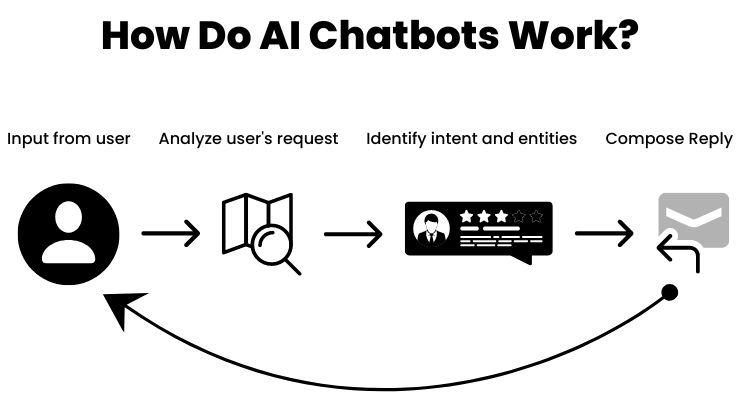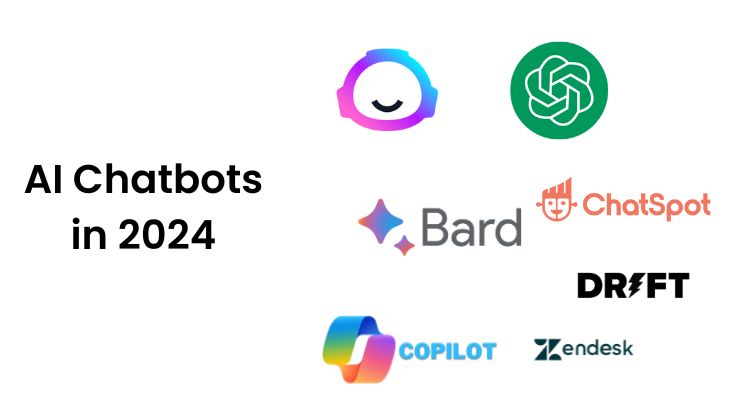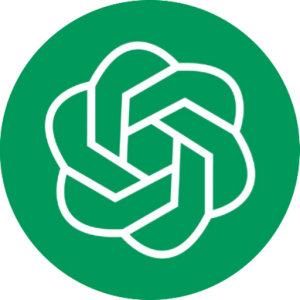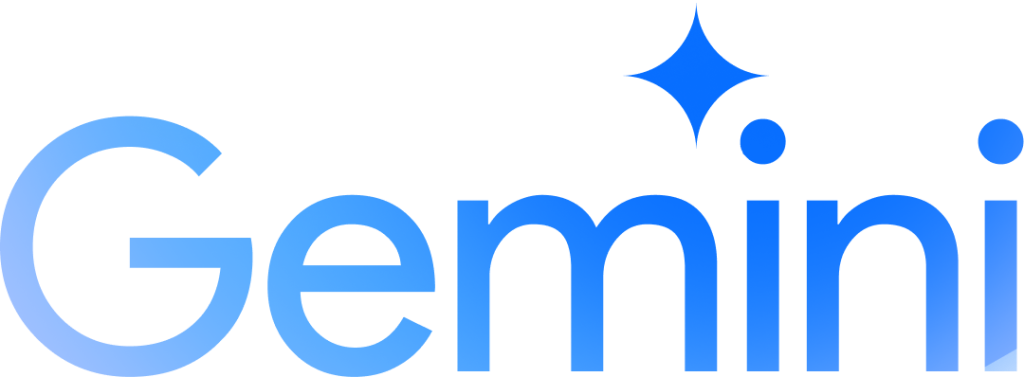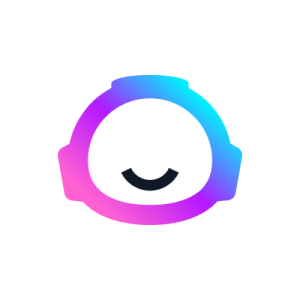Key Takeaways
- Top AI Chatbots: Explore the leading AI chatbots including ChatGPT, Google Gemini, and Microsoft Copilot, known for their advanced NLP capabilities.
- Customer Support: AI chatbots enhance customer service by providing 24/7 support, quick response times, and personalized interactions, reducing operational costs.
- Integration and Compatibility: Seamlessly integrate AI chatbots with CRM systems, social media platforms, and websites for comprehensive customer engagement.
- Multilingual Support: Utilize chatbots capable of handling multiple languages to cater to a diverse customer base globally.
- User Privacy: Ensure data privacy and security with encryption, secure APIs, and compliance with GDPR and other regulations.
- Learning and Adaptability: AI chatbots continuously learn from interactions to improve response accuracy and personalize user experiences.
- Business Use Cases: Common applications include lead generation, appointment scheduling, e-commerce assistance, and handling FAQs.
- Technological Advancements: Keep up with the latest AI and machine learning innovations to maintain competitive advantage in chatbot functionality.
- Performance Metrics: Track chatbot performance using metrics like user satisfaction, response time, and conversion rates to optimize functionality.
Welcome to the future of digital interaction! As we step into 2024, AI chatbots are not just a technological innovation but a necessity for businesses aiming to thrive in the current digital landscape.
There is no doubt that AI chatbots have rapidly evolved from a tech novelty to a fundamental component. Whether it’s about enhancing customer engagement or streamlining business operations, AI-based chatbots play an indiscipline role.
Apart from this, we all know today’s digital ecosystem demands immediacy and personalization that AI-powered chatbots deliver with precision.
Catering to this need, AI chatbots provide instant, customized interactions, essential for businesses aiming to scale and adapt to ever-changing consumer preferences.
Based on a study by MarketsandMarkets, the global AI chatbot market is expected to reach USD 9.4 billion by 2024, growing at a CAGR of 29.7% from USD 2.6 billion in 2019. This growth reflects the rising use of AI chatbots, especially in customer support, transforming business-customer interactions.
Here, we explore AI chatbots and their unique advantages for different industries, shaping the digital landscape in 2024.
Contents
- Key Takeaways
- Understanding AI Chatbots
- The Technologies Behind AI Chatbot (ML and NLP)
- How Do AI Chatbots Work?
- Use Cases for AI Chatbots
- Why Your Business Needs an AI Chatbot?
- List of Top AI Chatbots for your Business
- Build Your Own AI Chatbot With CodeConductor
- Popular Questions Related to AI Chatbots
- 1. How do AI Chatbots ensure data privacy and security?
- 2. What are the differences between rule-based and AI-based chatbots?
- 3. How can AI chatbots be integrated with existing CRM systems?
- 4. What role do AI chatbots play in enhancing customer experience?
- 5. How do AI chatbots handle multilingual support?
- 6. How do AI chatbots handle natural language processing (NLP)?
- 7. Can AI chatbots learn from past interactions?
- 8. What are the common use cases for AI chatbots in businesses?
- 9. How do AI chatbots integrate with social media platforms?
- 10. What are the limitations of AI chatbots?
Understanding AI Chatbots
AI Chatbots are advanced software applications designed to simulate conversational interactions with users. These chatbots use artificial intelligence to mimic human conversation, making them capable of handling multiple tasks, from answering queries to providing recommendations.
Unlike traditional chatbots that follow preset rules, AI-based chatbots can learn and evolve, improving their responses over time.
The Technologies Behind AI Chatbot (ML and NLP)
The functionality of AI chatbots hinges on two key technologies: Machine Learning (ML) and Natural Language Processing (NLP).
- Machine Learning (ML): This aspect of AI allows chatbots to learn from past interactions. By analyzing patterns in data, ML enables chatbots to make better decisions and provide more accurate responses. For instance, an ML-powered chatbot for customer services can learn from customer feedback to improve its customer service.
- Natural Language Processing (NLP): NLP technology is what makes chatbots understand human language. This technology interprets the user’s intent, regardless of the language’s complexity or slang. It allows chatbots to comprehend questions, provide relevant answers, and detect the user’s mood or tone.
Both technologies enable AI chatbots to offer personalized, engaging, and effective communication, capable of understanding and adapting to the user’s needs.
This level of interaction was previously only possible in human-to-human communication but is now a reality in AI-human interactions, thanks to the advancements in ML and NLP.
How Do AI Chatbots Work?
AI Chatbots work by fusing Artificial Intelligence and Natural Language Processing technologies. These technologies enable chatbots to understand, interpret, and respond to human language in a way that closely mimics human interaction.
Here’s a breakdown of how AI chatbots generally function:
- User Input Interpretation: When a user inputs a query or a statement, the AI chatbot receives this text. The first step is to understand the user’s intent. This is where NLP comes into play. Natural Language Processing helps interpret the user’s language, accounting for nuances, slang, and even errors in the input.
- Processing the Input: Once the input is understood, the chatbot processes it using AI algorithms. These algorithms analyze the input, consider the context, and determine the most appropriate response. If the chatbot has trained in a specific domain, it uses its knowledge base to find relevant information.
- Machine Learning: This is an ongoing process where the chatbot learns from each interaction. Through Machine Learning algorithms, it identifies patterns, improves language understanding, and refines its responses. This learning process makes AI chatbots more efficient and effective over time.
- Generating a Response: The chatbot formulates a response after processing the input. This response is constructed in a way that appears natural and human-like. The aim is not just to provide information but to do so in a conversational manner.
- Interaction and Feedback: Many advanced AI chatbots also can evaluate user feedback. If a user indicates that a response was not helpful or incorrect, the chatbot can use this information to improve future interactions.
- Integration with Databases and Systems: For more complex tasks, AI chatbots can be integrated with external databases, CRM systems, or other software. It allows them to pull in data or perform actions like booking appointments, retrieving account information, or processing transactions.
- Continuous Improvement: An essential aspect of AI chatbots is their ability to evolve. With each interaction, they gather data that is used to optimize and enhance their performance. This aspect is important for businesses as it ensures that the chatbot becomes more aligned with its specific customer service goals and operational needs over time.
Use Cases for AI Chatbots
AI chatbots have become versatile tools capable of transforming various industries, extending their applications from customer support to sales, marketing, content creation, and human resources.
- In customer support, they offer 24/7 assistance, handling inquiries instantly, which increases customer satisfaction and efficiency while reducing costs.
- In the domain of sales and marketing, these chatbots personalize customer interactions and boost sales conversions. According to the Invesp report, a 67% increase in sales due to chatbot interactions.
- For content creators, AI chatbots assist in writing and editing, enhancing creativity and ensuring quality.
- In human resources, AI-based chatbots streamline recruitment processes, enhancing candidate experiences and efficiency. The versatility and adaptability of AI chatbots across these diverse domains underscore their growing importance in today’s digital landscape, making them invaluable assets for modern businesses.
- AI chatbots also revolutionizing travel planning by offering personalized trip suggestions, providing 24/7 customer support across time zones, and assisting with language translation and local information. They streamline booking processes for flights, hotels, and transportation, enhancing the overall travel experience. There are several AI travel planning tools available that revolutionize the travel industry.
Why Your Business Needs an AI Chatbot?
AI chatbots across various business sectors have brought about several benefits, fundamentally transforming operational efficiency and customer interaction. These benefits range from enhancing client experience to improving data analysis and lead generation.
- Enhanced Customer Experience: One of the most significant benefits of AI chatbots is enhancing the customer experience. Chatbots meet the modern consumer’s expectations for swift and efficient service all by providing immediate, accurate, and personalized responses. This capability is particularly vital in today’s fast-paced world, where quick response times can be a deciding factor in customer loyalty and satisfaction.
- Efficiency and Scalability: AI chatbots offer an unparalleled level of efficiency and scalability. They can handle a vast volume of interactions simultaneously, which is beyond the capacity of human agents. This aspect ensures consistent customer service quality and allows businesses to scale their operations without a corresponding increase in support staff. The scalability of chatbots makes them ideal for handling peak times and fluctuating customer service demands.
- Data Gathering and Analysis: Another advantage of AI chatbots is their ability to gather and analyze customer data. Chatbots can collect valuable insights about customer preferences, behaviors, and feedback. This data can be used to tailor services and products more effectively, inform business strategies, and predict future customer trends.
- Lead Generation and Support: Chatbots are also instrumental in lead generation and support. They can initiate conversations with potential customers, provide information, and guide them through the sales funnel. By automating the initial stages of customer interaction, chatbots free up human agents to focus on more complex tasks, thereby optimizing the sales process and improving conversion rates.
The cumulative effect of these benefits is a more streamlined, effective, and customer-centric approach to business operations. AI chatbots represent a confluence of customer service excellence, operational efficiency, and strategic business intelligence, making them an indispensable tool in the digital age. As AI technology continues to advance, the role and impact of chatbots are poised to grow even further, redefining the landscape of business-customer interactions.
List of Top AI Chatbots for your Business
As the question of “how many AI chatbots are there” continues to grow with the industry’s expansion, it’s essential to focus on the standout performers in the field. In 2024, numerous AI chatbots have emerged, but a few have distinguished themselves through exceptional capabilities and innovative features.
Here are best AI Chatbots that are redefining the landscape of AI chatbot technology:
1. ChatSpot
ChatSpot is a versatile chatbot platform known for its adaptability across various business contexts. It excels in customer service, engagement, and support.
ChatSpot utilizes advanced natural language processing to understand and respond to customer queries effectively. It is designed to integrate seamlessly with numerous platforms, enhancing the user experience and providing comprehensive support solutions.
- Founder of ChatSpot – Dharmesh Shah
- URL: www.chatspot.ai
- Features: Combines ChatGPT with data sources like HubSpot CRM for business applications, integrated content generation, SEO optimization, CRM command line, and company performance analysis.
- Cost: Free.
- Uses: Primarily used for accelerated sales prospecting, content creation, and CRM data management.
2. ChatGPT
ChatGPT, developed by OpenAI, stands out for its ability to generate human-like text based on the input it receives. This AI-driven chatbot uses a variant of the GPT (Generative Pre-trained Transformer) model, making it adept at understanding and responding to a wide range of queries.
It is widely used for tasks ranging from answering questions to creative writing and even coding assistance.
- Founder of ChatGPT – Sam Altman
- URL: www.chat.openai.com
- Features: Consumer and enterprise versions are available, with capabilities ranging from assisting in work tasks to being used for token-based enterprise applications.
- Cost: Free plan available; ChatGPT Plus at $20/month; Enterprise API pricing varies based on token usage.
- Uses: Assists individuals with a range of tasks, less customizable for consumer use, and more tailored for business applications with the API.
3. Copilot (Bing Chat)
Next on the list is Copilot. it is an AI-powered chatbot primarily designed for developers. It leverages the capabilities of advanced AI to assist in code generation and problem-solving in software development.
Copilot can understand programming queries and provide code suggestions, making it a valuable tool for accelerating development processes and improving coding efficiency.
- Founder: Mustafa Suleyman
- URL: Copilot
- Features: Integrated into Microsoft Edge, offers complex question answering, summarized information, and search capabilities.
- Cost: Copilot for Sales is $50 per user per month. Alternatively, it’s included with Dynamics 365 Sales Enterprise and Sales Premium packages at no additional charge.
- Uses: Useful for internet browsing and research, and offers contextual answers based on the webpage being viewed.
4. Google Gemini
Moving forward, Google Gemini is a conversational AI chatbot developed by Google. It utilizes Google’s vast data and advanced AI algorithms to provide informative and accurate responses.
Google Gemini is designed to assist in information gathering, help with educational queries, and engage users in informative dialogues. It’s known for its ability to pull up-to-date information from the web, making it a dynamic tool for learning and discovery.
- Founder: Google DeepMind
- URL: gemini.google.com
- Features: Retrieve real-time information from YouTube, Hotels, Flights, and Maps. Google Bard also fetches details from your Gmail, Docs, and Drive.
- Cost: Free, requires a Google Account for access.
- Uses: Ideal for those seeking to utilize generative AI for collaborative ideation and productivity without incurring costs.
5. Jasper Chat
Jasper Chat is a specialized chatbot known for its content creation capabilities. It assists users in generating high-quality content for various purposes, including marketing, blogging, and creative writing.
Jasper Chat uses AI to understand the context and provide relevant, original content suggestions, streamlining the content creation process.
- Founder of Jasper Chat– Dave Rogenmoser
- URL: www.jasper.ai
- Features: Includes several large language models for high-quality output, auto-updates to the newest models, and can write about recent news and cite sources.
- Cost: Starts at $39 per month/seat.
- Uses: Tailored for content creation across various online platforms.
6. Drift
Drift is a conversational marketing platform that features an AI-powered chatbot designed to enhance the lead-generation process. It specializes in automating and personalizing customer interactions on websites, helping businesses capture and qualify leads more efficiently. Drift’s chatbot is known for its ability to provide a seamless experience from visitor to customer, thereby boosting conversion rates.
- Founder of Drift – David Cancel
- URL: www.drift.com
- Features: Offers conversational firepower for businesses, with AI-powered chatbots that engage website visitors and assist in personalization and pipeline generation.
- Cost: The premium plan starts at $2,500/month billed annually; the Enterprise plan is custom-priced.
- Uses: Suited for small businesses to large enterprises looking to scale personalization and customer engagement.
7. Zendesk Answer Bot
Zendesk Answer Bot is an AI chatbot for customer services. It is integrated into the Zendesk customer support platform to automate responses to common customer inquiries, thereby enhancing efficiency in customer service.
Using AI, the Answer Bot can understand customer questions and provide immediate, relevant answers or escalate the query to a human agent if needed. It’s particularly useful for businesses looking to optimize their customer support operations.
- Founders of Zendesk Answer Bot – Mikkel Svane, Alexander Aghassipour, & Morten Primdahl
- URL: www.zendesk.com
- Features: Offers a ticketing system, support for email, chat, voice, social messaging, a help center, standard bots, prebuilt analytics dashboards, and over 1,000 apps and integrations.
- Cost: Basic plans start at $19/month. The “Suite Team” plan is priced at $55 per agent/month or $3,300/year for 5 agents.
- Uses: Primarily used for customer service and support, integrating various communication channels and offering automated assistance through bots.
Build Your Own AI Chatbot With CodeConductor
Is it possible to build an AI chatbot within a few minutes?
Yes, with CodeConductor, it is possible. This popular AI software development platform allows you to create clones of famous platforms such as Slack, Zillow, Airbnb, DoorDash, and Starbucks,
Using an AI software development platform like CodeConductor, users can create clones of popular platforms such as Slack, Zillow, Airbnb, DoorDash, and Starbucks, utilizing pre-built templates.
No matter, whether you’re a small business owner or a budding entrepreneur, to create an AI chatbot that truly stands out.
The diversity of these chatbots demonstrates AI’s versatility in adapting to various needs and industries. Investing in AI-based chatbots, particularly through AI-backed software development platforms like CodeConductor, which enables you to create your AI-based chatbot with production-ready code, is a wise decision for businesses seeking efficiency and a competitive edge.
So, what are you waiting for???
Start your journey with an AI-powered CodeConductor to transform your business.
Build Your Own AI Chatbot Today!
Popular Questions Related to AI Chatbots
1. How do AI Chatbots ensure data privacy and security?
AI Chatbots use encryption protocols, secure APIs, and compliance with regulations like GDPR to protect user data. They implement secure authentication methods and regular audits to prevent breaches.
2. What are the differences between rule-based and AI-based chatbots?
Rule-based chatbots follow predefined scripts and can handle limited scenarios. AI-based chatbots, powered by NLP and machine learning, can understand context, learn from interactions, and handle complex queries.
3. How can AI chatbots be integrated with existing CRM systems?
AI chatbots integrate with CRM systems via APIs, allowing seamless data flow. They update customer interactions in real-time, enabling personalized responses and efficient customer service management.
4. What role do AI chatbots play in enhancing customer experience?
AI chatbots provide 24/7 support, instant responses, and personalized interactions. They reduce wait times and can handle multiple queries simultaneously, improving overall customer satisfaction.
5. How do AI chatbots handle multilingual support?
AI chatbots use (Natural Language Processing) NLP algorithms to understand and respond in multiple languages. They leverage language models and translation APIs to provide accurate and contextually relevant responses across different languages.
6. How do AI chatbots handle natural language processing (NLP)?
AI chatbots use NLP to understand and interpret human language, leveraging machine learning algorithms to process text, detect intent, and generate contextually appropriate responses.
7. Can AI chatbots learn from past interactions?
Yes, AI chatbots use machine learning to analyze past interactions, improving their responses over time. They adapt to user behavior and preferences for more accurate and personalized conversations.
8. What are the common use cases for AI chatbots in businesses?
AI chatbots are used for customer support, lead generation, appointment scheduling, FAQs, and e-commerce assistance. They streamline operations and enhance customer engagement.
AI chatbots connect with social media through APIs, enabling automated responses to messages and comments, improving customer interaction, and providing instant support across multiple channels.
10. What are the limitations of AI chatbots?
AI chatbots may struggle with understanding complex queries, nuances, and emotions. They rely on existing data and may require human intervention for handling non-standard or sensitive issues.

With an unyielding passion for tech innovation and deep expertise in Artificial Intelligence, I lead my team at the AI forefront. My tech journey is fueled by the relentless pursuit of excellence, crafting AI solutions that solve complex problems and bring value to clients. Beyond AI, I enjoy exploring the globe, discovering new culinary experiences, and cherishing moments with family and friends. Let’s embark on this transformative journey together and harness the power of AI to make a meaningful difference with the world’s first AI software development platform, CodeConductor


